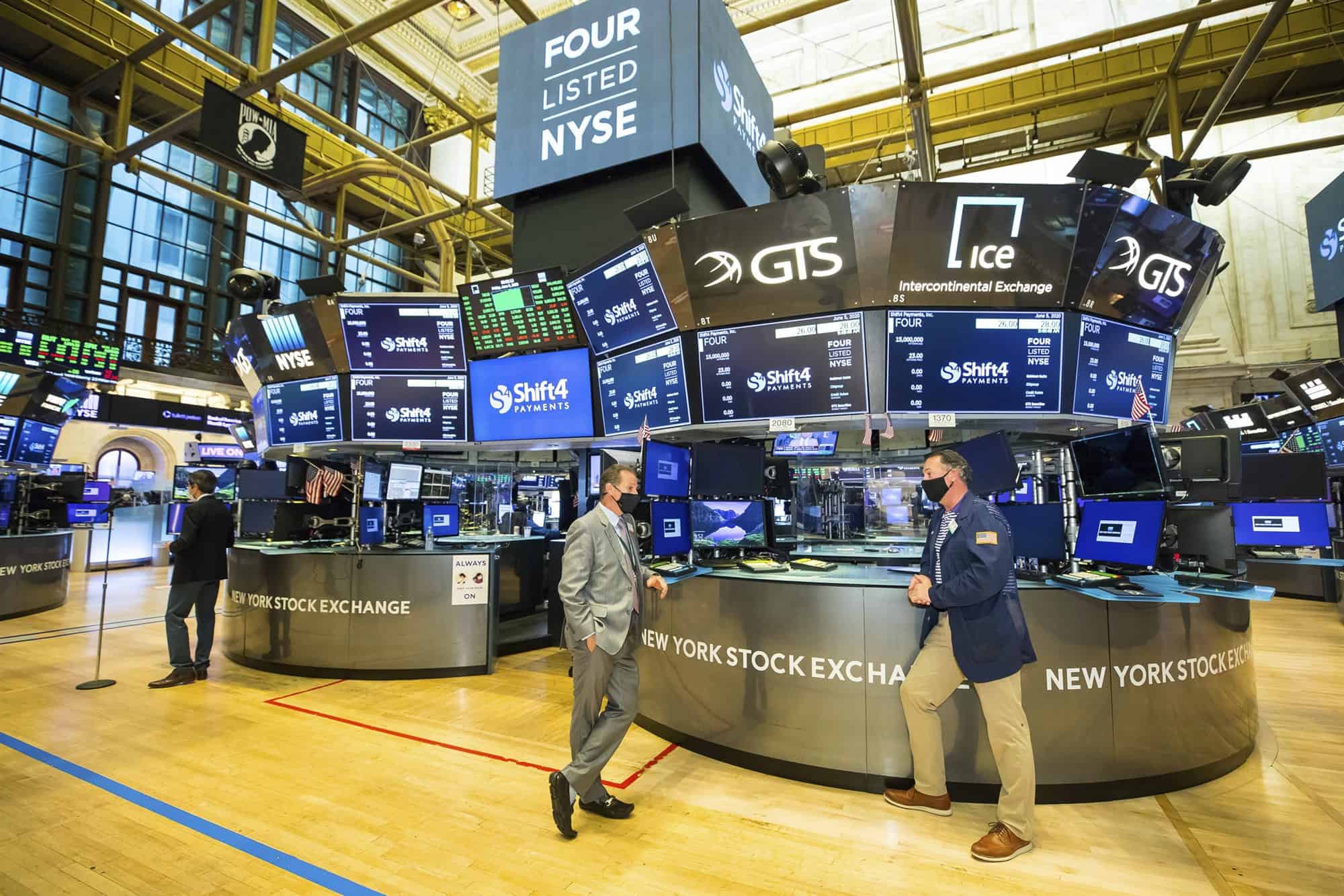Wall Street soared on Monday, brushing aside the news that the U.S. has officially entered a recession.
The Dow Jones Industrial Average ended the day 460 points higher, the S&P 500 erased its losses for the year to close up by 1.2 percent, and the Nasdaq hit a new high and edged even closer to the 10,000 mark.
The market buoyancy came as the National Bureau of Economic Research, the arbiter of economic growth and contraction, announced Monday that “a clear peak in economic activity” had trailed off after February.
“The unprecedented magnitude of the decline in employment and production, and its broad reach across the entire economy, warrants the designation of this episode as a recession,” the agency reported.
Unemployment is at 13.3 percent nationwide — or 16.3 percent, according to the Department of Labor’s own adjusted account — and, for 11 straight weeks, millions of Americans have filed for first-time unemployment benefits. Small business owners are struggling with stay-at-home-mandated closures combined with protests and, in some cases, property damage from riots and looting, after the death of George Floyd at the hands of Minneapolis police.
However, investors remain firmly optimistic that recovery is within spitting distance — despite metrics that indicate economic pain across the nation.
Part of that fearlessness comes from the unprecedented actions taken by the Federal Reserve, economists argue.
“The Fed has taken away the tail risk. They’ve said we’re going to do whatever it takes to make sure the financial system performs well and that the stock market doesn’t evaporate,” Mark Zandi, chief economist at Moody’s Analytics, told NBC News.
Another reason for the apparent divide between Wall Street and Main Street is that investors are following the movements of indices that comprise only a handful of companies, and that rising shares at those corporations confer an outsized influence on stock market movements.
To wit, Tesla shares ended the day at $949, a surge of 6 percent, after a report from the China Passenger Car Association showed that sales of the Model 3 more than tripled in May from their April levels — helping propel the Nasdaq even closer to the 10,000 level, which would be a record high.
Tesla rival Nikola also revved up the tech-heavy index, with shares soaring by over 100 percent after founder and chairman Trevor Milton announced a reservation date for the company’s hotly anticipated Badger electric truck.
Gains by Boeing led the Dow higher, after shares in the aerospace company surged by more than 12 percent on Monday, due to an analyst report that said the worst was over for America’s biggest exporter. The travel industry has been hardest hit by the coronavirus pandemic, but an uptick in new reservations and a gradual reopening of major U.S. destinations such as theme parks and casinos have boosted investor confidence in this sector.
Wall Street has proven to be very sensitive to remarks from Federal Reserve Chairman Jerome Powell — and the opportunity will arrive again this week. The Fed’s Open Market Committee, which votes on rates, convenes on Tuesday and Wednesday for the first time since markets have stabilized.
While Powell has described the current economic crisis as “a level of pain that is hard to capture in words,” he has nonetheless expressed confidence that the economy will “recover steadily through the second half of this year.”
Investors and other market participants will be listening closely to Powell’s press conference on Wednesday to determine how the man at the helm of the world’s largest economy will summarize the nation’s economic rebound and refine his guidance for the remainder of 2020.

